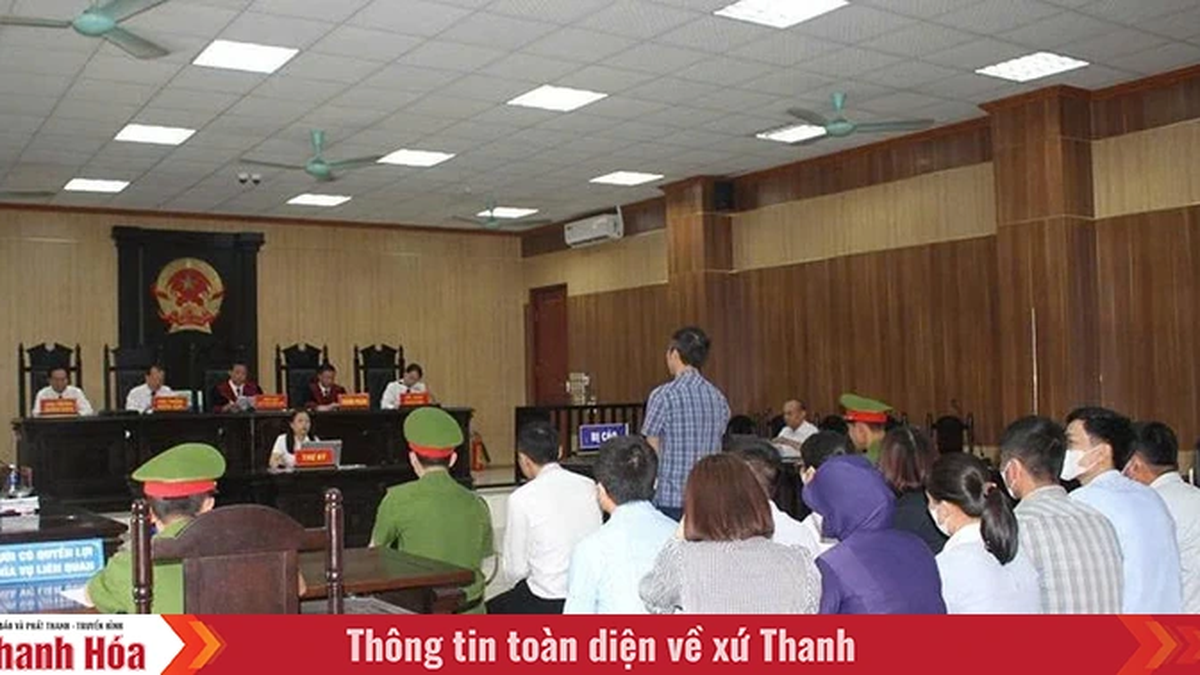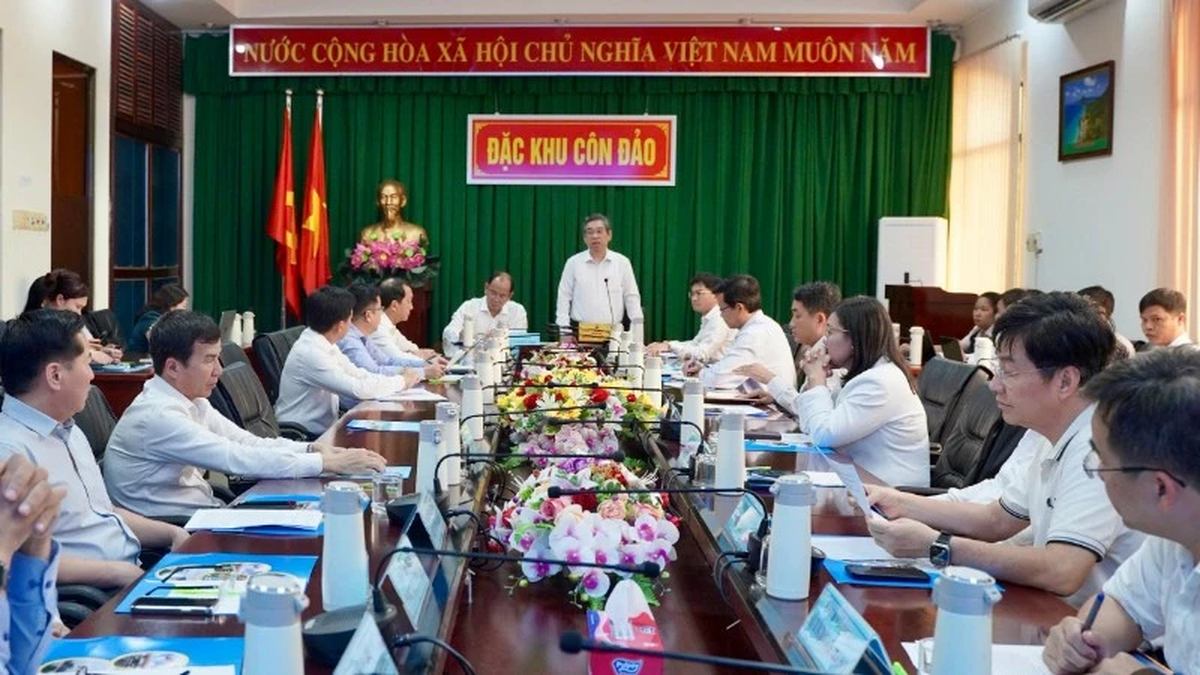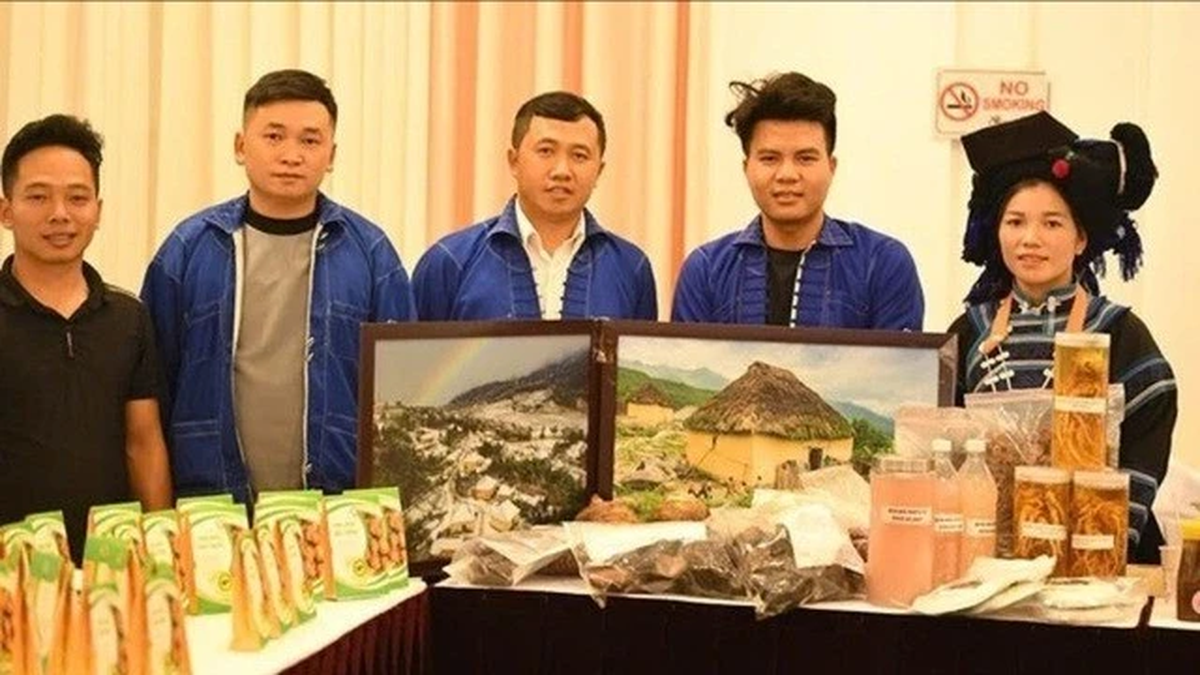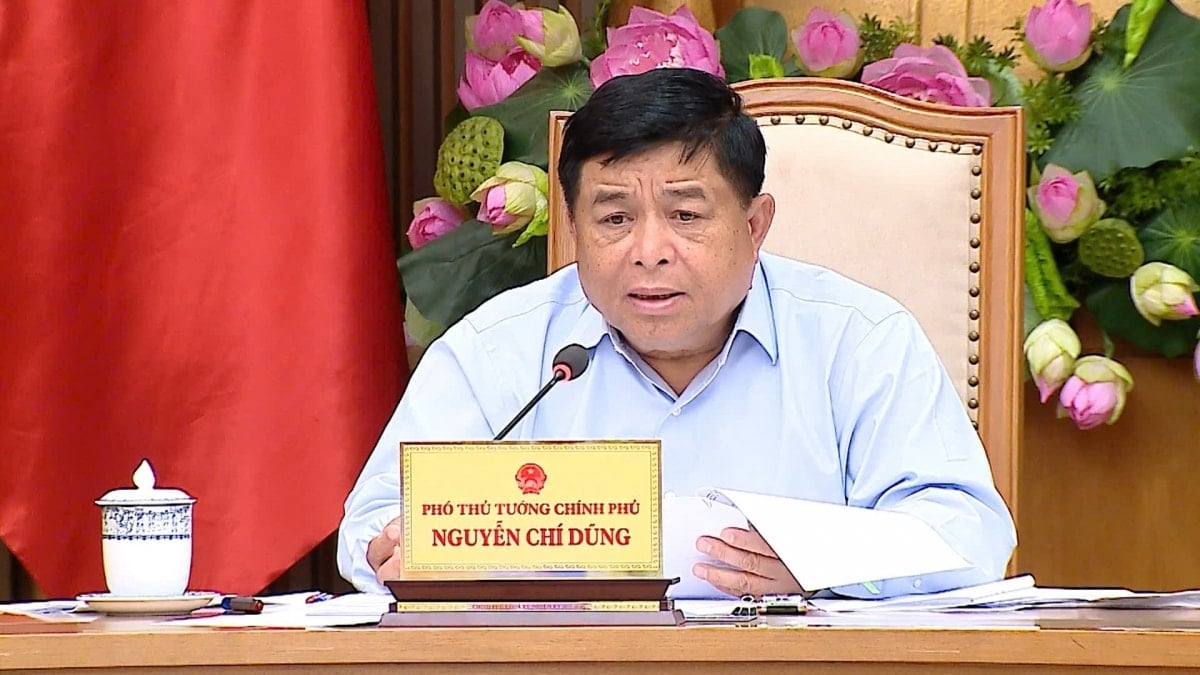In high-tech agriculture , technology is not only a tool to increase productivity and product quality, but also a “key” for farmers to open the door to knowledge and markets. However, for technology to be able to promote its value in production practices, an open and consistent policy corridor is needed, especially for new technologies with high risks.
Technology “lies dormant” in the lab
According to the report of the Ministry of Agriculture and Rural Development (now the Ministry of Agriculture and Environment ), many research results in the field of crops have clearly shown the trend of approaching high technology in agriculture. For example, in the first 6 months of 2023, units under the Ministry selected and recognized 25 new varieties of food crops, fruit trees and medicinal plants; at the same time, 9 technical processes for comprehensive intensive cultivation and management according to GACP-WHO standards were built to serve commodity production.
The often overlooked link in the value chain is the post-harvest stage, which has also received attention from scientists , with the completion of technological processes for some key fruits such as bananas, durians and avocados. This process not only extends the harvest season by at least 15 days but also increases the uniform ripening rate to over 95%, extends the storage time to 25 days, meeting the increasingly stringent transportation and export requirements of the international market...
However, many technologies are still “stuck” in the laboratory due to the lack of appropriate promotion policies, typically the technology of selecting and creating F1 hybrid vegetable varieties. Vietnam has not yet mastered F1 hybrid vegetable varieties - a factor considered the “foundation” of high-tech agriculture because it determines productivity, quality and adaptability to climate change. Currently, Vietnam has to import 80-90% of vegetable seeds such as cabbage, kohlrabi, carrots, onions, cucumbers, melons, etc. It is estimated that each year, Vietnam has to spend more than 200 million USD to buy seeds.
One of the reasons why research institutes do not dare to conduct research is because of the large investment, high risk, but lack of incentive mechanism and risk insurance for scientists. Over the past 10 years, only the Institute of Food Crops and Food Plants has cooperated with the Japanese Vegetable Research Institute, sent staff for training and has acquired technology to serve the breeding of F1 vegetable varieties. The Institute's research team has successfully bred F1 cabbage varieties but only at a trial scale due to lack of funding and no long-term support mechanism.
One of the reasons why research institutes do not dare to conduct research is because of the large investment and high risk, but the lack of incentive mechanisms and risk insurance for scientists.
Another research group of the Institute also cooperated with the Kingdom of Belgium - the world's leading country in potato varieties and cultivation technology - to perfect the process of producing synthetic potatoes in a digital direction. This system integrates data and digital models to control all inputs such as seeds, fertilizers, planting schedules, land preparation, irrigation, etc., helping farmers make accurate decisions at each stage. If widely applied, the technology can help double potato productivity to more than 30 tons/ha, meeting the needs of deep processing and export. This process has not been transferred to farmers due to lack of policies and funding.
Gene editing is considered the technology of the era, an important indicator in assessing the national level of science and technology in the field of biotechnology, and at the same time opens a turning point for the agricultural sector with crop varieties that are resistant to climate change, adaptable to climate change, shorten growth time, increase productivity and reduce costs.
Since 2017, domestic research facilities have carried out a number of gene editing projects in rice, corn, soybeans, etc. Many gene editing projects have produced plant varieties ready for production, and many businesses have proposed transferring them, but they have not been able to be implemented yet because Vietnam does not have a clear legal framework for gene editing organisms. Dr. Do Tien Phat, Institute of Biology (Vietnam Academy of Science and Technology) said that gene editing crop lines such as soybeans with increased oleic acid content, nutritious tomatoes, and virus-resistant tobacco, etc. have been successfully researched by the Institute of Biology and are ready to be transferred to businesses and people.
On June 12, the Prime Minister issued a list of strategic technologies and strategic technology products, in which gene editing is considered a strategic application direction in the fields of medicine and agriculture. This shows that the legal corridor is gradually taking shape, but policies need to be concretized soon, including the design of a flexible testing mechanism (sandbox) specifically for gene editing technology.
From policy to people
Many experts believe that it is necessary to remove institutional, financial and research management bottlenecks. Associate Professor, Dr. Nguyen Ngoc Son, member of the National Assembly's Committee on Science, Technology and Environment, said that the innovation ecosystem in agriculture is still fragmented, lacking regional high-tech agricultural startup incubators to test new models before expanding. Domestic technology is still weak, mainly dependent on equipment, seeds and software from abroad. There is also a lack of close links between research institutes - businesses - farmers to transfer knowledge and technology effectively and sustainably.
According to Dr. Do Tien Phat, if the State continues to invest capital, scientists continue to work hard on research, but the products produced do not have the opportunity to be applied in practice, it will not only waste the budget but also waste brainpower.
Therefore, the first thing is to change the policy approach, shifting from "encouraging" to "creating" with a "paving the way" mechanism, sharing risks and promoting multi-stakeholder cooperation... When the State creates favorable conditions, people, businesses and scientists will together create an innovative agricultural ecosystem.
Dr. Nguyen Trong Khanh, Director of the Institute of Food Crops and Food Plants, expects that Resolution 57-NQ/TW on breakthroughs in science, technology, innovation and national digital transformation will be a breakthrough for technology to be quickly applied in production, with a risk-taking mechanism and a change in thinking from pre-control to post-control in managing research results.
He cited the shortcomings of Decree 70/2018/ND-CP dated May 15, 2018 on “Planning the management and use of assets formed through the implementation of scientific and technological tasks using state capital”, according to which, in order to transfer a new plant variety, scientists must prepare a pricing plan, report to ministries and branches and commit that the product must reach a specific scale in the field after a few years. Meanwhile, success depends not only on scientists, but also on businesses, markets, investments, etc. Therefore, scientists do not take risks with the transfer of research results.
With Resolution 57-NQ/TW, many scientists believe that valuable scientific products will be proactively accepted by businesses and the market; the State should only conduct post-audits after 3-5 years to evaluate the results to encourage scientists to confidently transfer research results.
Resolution 57-NQ/TW with the policy of accelerating the application of research results into production not only helps promote the value of science and technology but is also an urgent solution to retain scientists for the agricultural sector, which is facing a "brain drain" due to the recent policy of streamlining staff and inadequate remuneration.
According to Dr. Do Tien Phat, if the State continues to invest, scientists continue to work hard on research, but the products produced do not have the opportunity to be applied in practice, it will not only waste the budget but also waste brainpower. Scientists' efforts are not recognized by society, nor will it create motivation for them to continue to contribute. If this situation is not resolved by policy breakthroughs, it will continue to erode high-quality human resources in the field of science and technology, especially high-tech agriculture.
Source: https://nhandan.vn/bai-2-coi-troi-cho-cong-nghe-nong-nghiep-post888842.html



















































![[Maritime News] More than 80% of global container shipping capacity is in the hands of MSC and major shipping alliances](https://vphoto.vietnam.vn/thumb/402x226/vietnam/resource/IMAGE/2025/7/16/6b4d586c984b4cbf8c5680352b9eaeb0)













































Comment (0)